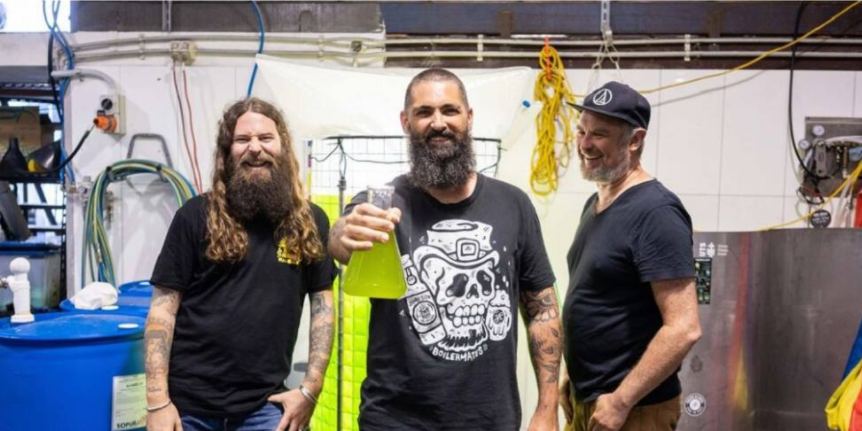Beef and beer. We've always known this historic paring goes hand-in-hand. But, could it help the red meat industry achieve its Carbon Neutral 2030 (CN30) goals?
A new collaboration between Meat & Livestock Australia, the University of Sydney, and an inner-city based brewery, Young Henrys is trying to achieve just that, converting by-products from brewing beer into livestock feeds that reduce methane emissions.

Image: Young Henrys
MLA's Program Manager of Sustainability Innovation, Doug McNicholl, said if sufficient amounts of algae can be grown, it could have a significant impact on emissions from the livestock sector.
"Together with our industry partners, we're aiming to develop a methane-mitigating feed supplement in the form of 'microalgae', grown using the carbon dioxide produced during the brewing process," said Mr McNicholl.
"Animal feeding trials will be conducted to evaluate the methane reduction and animal productivity benefits of the microalgae. If successful, this process could be implemented in breweries everywhere, plus pave the way for applications in other industries with carbon dioxide suitable for algae production.
"Feed additives that can reduce livestock methane emissions and improve livestock productivity are an important part of the [Australian Red Meat Industry's] CN30 Roadmap. Investments like this also support the circular economy; converting by-products from one industry into valuable product(s) for the red meat industry.
If enough product can be produced to incorporate into feedlot rations and supplementation program on-farm in a safe, cost-effective way, we're going to make a significant impact on livestock emissions, as well as introduce a new feed supply to industry.






